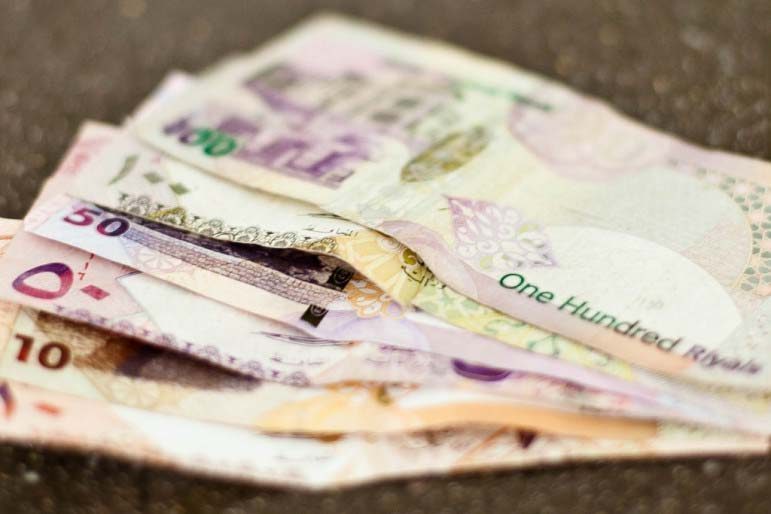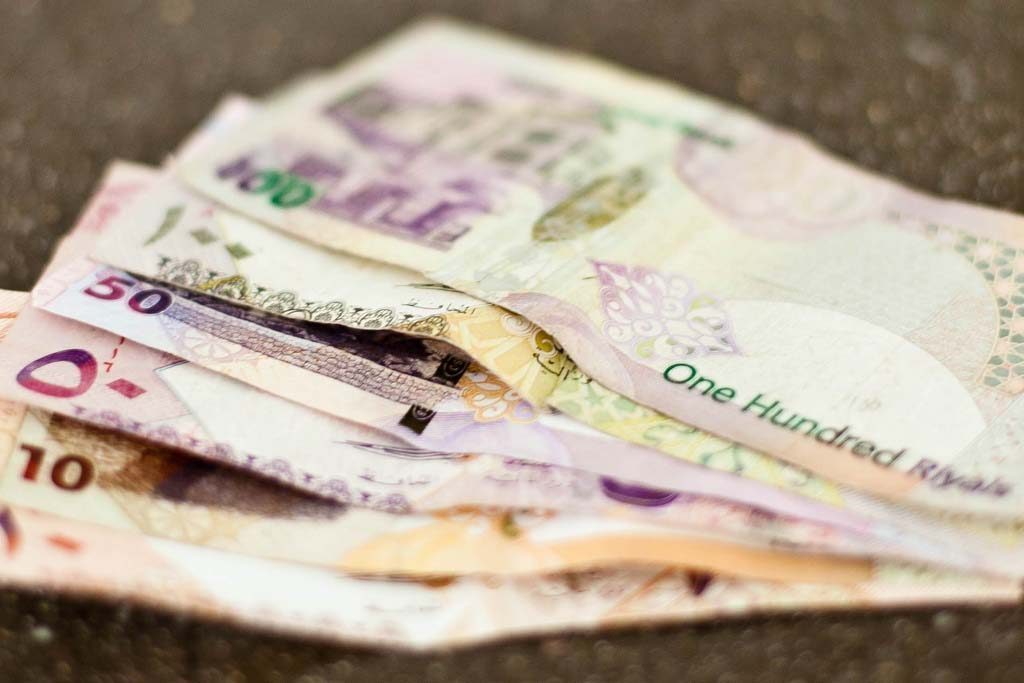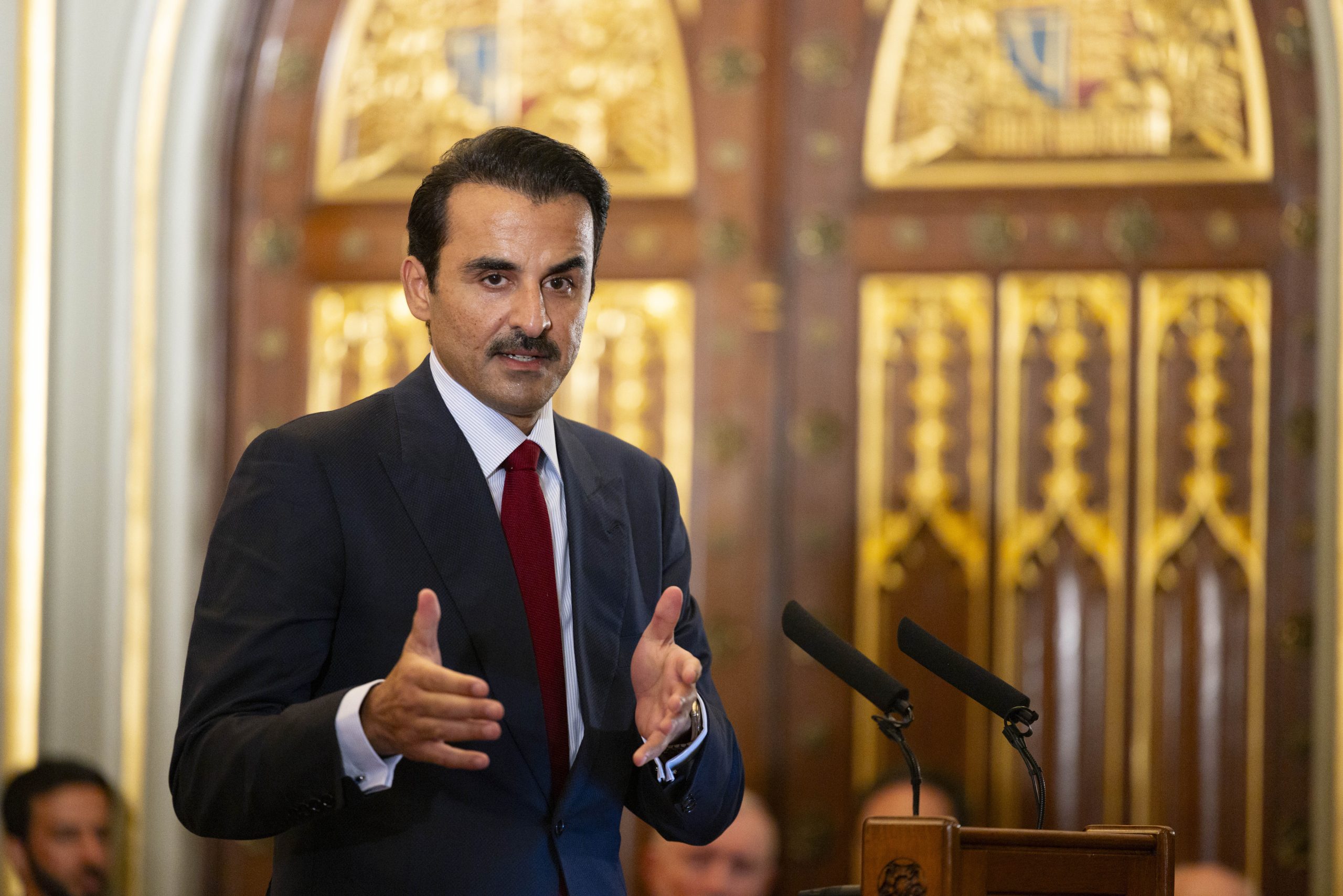
For the first time in a decade, the amount of money taken home by government workers in Qatar has declined after lower oil prices eroded the country’s finances.
Preliminary data released this week by the Ministry of Development Planning and Statistics (MDPS) shows spending on wages and salaries fell 2.7 percent in 2014-15 compared to the previous fiscal year.
This doesn’t necessarily mean that employees took a pay cut, as the decline could have been caused by a reduced headcount within government departments.

But the numbers mark a significant shift from previous years, during which compensation was typically increased for public servants, including in 2011 when salaries were raised an eye-catching 60 percent for nationals.
The drop in spending comes as senior politicians in Qatar – including the Emir – have stressed the need to control spending.
However, spending on administrative costs and grants continued to surpass the budgeted amounts, MDPS reported.
Meanwhile, lower oil prices appear to be hitting Qatar harder than expected, with government economists revising their growth forecasts downwards and projecting the country will start running deficits next year.
However, the outlook remains bright for many business sectors as the economy diversifies away from oil and gas.
Lower-than-expected growth
According to its semi-annual economic outlook, MDSP said that it expects Qatar’s economy to grow by 7.3 percent this year. While that’s still robust by global standards and 1.2 percentage points higher than 2014, the projection is down from a forecast of 7.7 percent published in December.
Lower oil prices – which can also act as a drag on natural gas prices – are causing energy companies in Qatar and around the world to cut costs.

That’s led to reports of significant layoffs and hiring freezes at some of the oil and gas firms here.
This week, MDPS hinted that more cuts may be in store, saying it expects additional “effective cost reductions” within the industry.
With hydrocarbon revenues making up more than half of Qatar’s government revenues, falling oil prices have caused the amount of money brought in to fall by 15.8 percent over the previous fiscal year.
However, MDPS cautioned that this figure is preliminary and that there have been delays in previous years in tallying up oil and gas revenues.
The ministry said this means that the government is expected to run its first fiscal deficit in 15 years in 2016. While MDPS did not put a dollar figure on its projection, others have suggested it could be around US$3.91 billion.
The deficit will likely put pressure on bureaucrats to cut costs, but this could prove tricky given ongoing preparations for the 2022 World Cup and infrastructure development. In its report, MDPS said:
“Oil prices, which are forecast to be well below levels of recent years, are expected to squeeze revenues (at a time when) capital spending programs will move ahead and current spending commitments will be difficult to trim.”
Outside the energy and government sectors, the ministry’s report predicted that the pain caused by lower oil prices would not be felt across the wider economy.
The rush to complete countless real estate, transportation and infrastructure projects means the construction sector is expected to lead Qatar’s economic growth this year.
Despite reports of key development projects being postponed, senior ministers have publicly insisted that all government spending initiatives are going ahead as planned.
Qatar will launch its all proposed projects as intended, said Finance Minister Ali Sherif Al Emadi, according to The Peninsula. No projects will be delayed or deferred, he added.
Transitioning economy
This is good news for both contractors and businesses that have benefited from Qatar’s construction boom. That includes banks, which have done brisk business extending credit to contractors working on large infrastructure projects, as well as insurance and trucking companies.
The ministry expects that rapid boom to start tapering off next year and in 2017 as contractors focus on completing existing jobs such as the Doha Metro and Msheireb, rather than breaking ground on new projects.
Expansion of the broader service sector – which includes financial, real estate, transport and communication businesses, among others – is also expected to be curtailed by relatively lower population growth.
But other areas are expected to pick up the slack. That includes hospitality businesses, which are benefiting from more conferences being held in and around Doha as well as the increasing number of tourists visiting Qatar, MDPS said.
Taken together, both the construction and service sectors – which together make up about 60 percent of Qatar’s economy – will keep growing, but at a slower pace (see sidebar).
While oil and gas production is predicted to plateau in the coming years, the manufacturing sector is forecast to grow thanks to a new refinery – Laffan 2 – that’s expected to start operating next year and produce jet fuel, among other products.
Thoughts?







